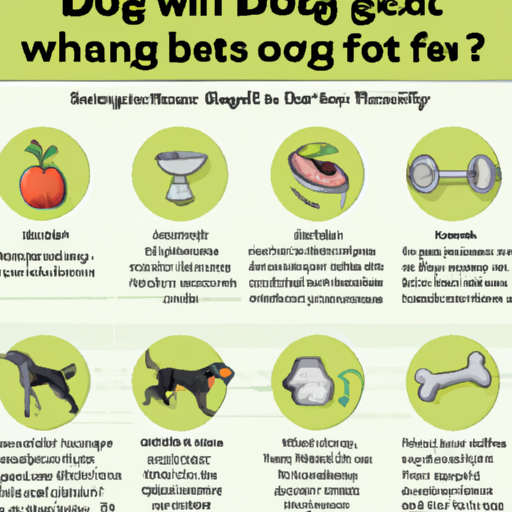As a caregiver, you may find yourself in a situation where your beloved canine friend needs to gain some weight. This can be due to various reasons including illness, poor diet, or simply because they are underweight. Here are some comprehensive steps and tips to help your furry friend gain the weight they need to stay healthy.
1. Understand your Dog’s Ideal Weight
Firstly, it’s important to understand what your dog’s ideal weight is. This can vary greatly depending on the breed, age, and size of your dog. A Chihuahua, for instance, will have a vastly different ideal weight compared to a Great Dane.
Your vet is your best resource here. They can provide you with a weight range that’s healthy for your dog’s specific breed and age.
2. Evaluate your Dog’s Current Diet
Take a good look at what your dog is currently eating. Many commercial dog foods lack the necessary nutrients and calories that your dog might need to gain weight.
- Protein: Dogs require a diet rich in protein. Protein helps build and maintain muscle mass, which will contribute to healthy weight gain.
- Fats: Fats are an essential part of a dog’s diet. They provide energy and help in the absorption of certain vitamins.
| Nutrients | Their role |
|---|---|
| Protein | Builds and maintains muscle mass |
| Fats | Provide energy and absorption of vitamins |
3. Increase Caloric Intake
To gain weight, your dog will need to consume more calories than they burn. You can increase caloric intake by:
- Adding more meals into your dog’s daily feeding schedule.
- Incorporating healthy snacks between meals.
- Adding nutritional supplements to their diet.
Remember, it’s crucial to monitor your dog’s weight gain progress to ensure they are not gaining too much too quickly.
4. Regular Exercise
While it might seem counterintuitive, regular exercise is essential even when the goal is weight gain. Exercise helps to build muscle, which weighs more than fat.
- Regular walks
- Playtime in the yard
- Dog-friendly sports
5. Regular Check-ups
Regular vet check-ups are vital during this period. They can monitor your dog’s health and ensure that the weight gain is gradual and healthy.
Frequently Asked Questions
Q1: How quickly should my dog gain weight?
A: Slow and steady is the best approach to dog weight gain. Rapid weight gain can lead to health issues.
Q2: Can I just feed my dog more of their current food?
A: Simply feeding your dog more may not be enough. It’s important to ensure the food they are eating is nutrient-dense and high in protein.
Q3: How do I know if my dog is at their ideal weight?
A: Your vet can help determine your dog’s ideal weight based on breed, age, and size.
Remember, the journey to weight gain for your dog should be a gradual and healthy one. Always consult with your vet to ensure the steps you’re taking are in the best interest of your dog’s health.



